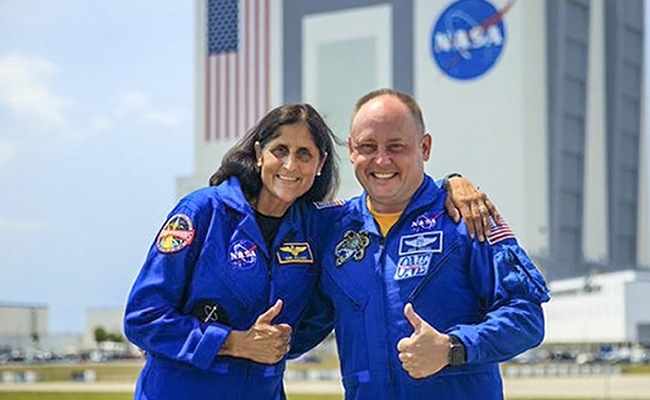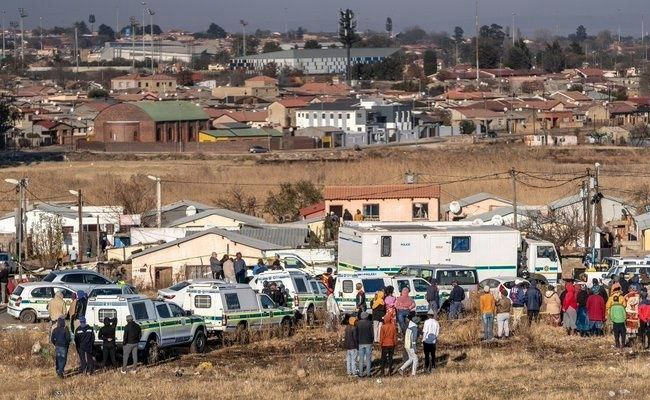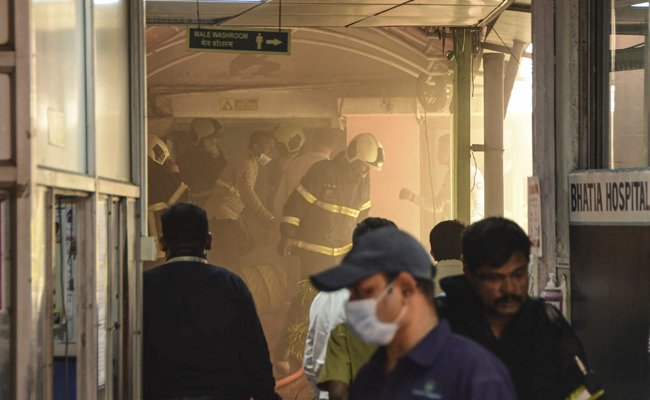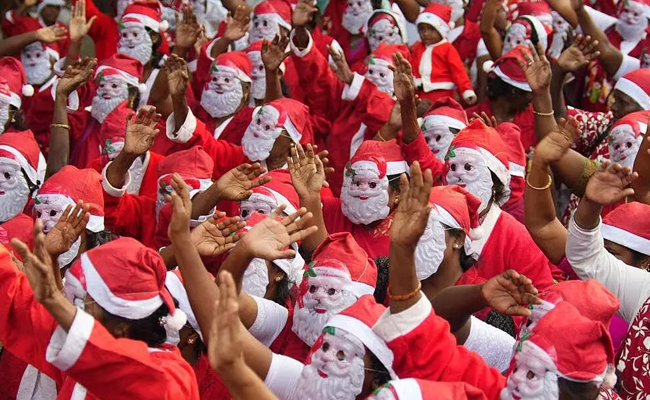Stranded on the International Space Station through February, NASA astronauts Sunita Williams and Butch Wilmore plan to vote in the November 5 US presidential election from space.
“It’s a very important duty that we have as citizens and (I am) looking forward to being able to vote from space, which is pretty cool,”
Williams, who is of Indian origin, said on a call with reporters on Friday afternoon.
Williams, 58, and Wilmore, 61, participated in a press conference on Friday from the International Space Station (ISS), which has been their home since June.
Their Boeing Starliner spacecraft ran into several problems midflight and could not bring them home from a planned 8-day voyage. “I sent down my request for a ballot today,” Wilmore said.
“It’s a very important role that we play as citizens including those elections, and NASA makes it very easy for us to do that,” he said.
They, however, did not indicate which presidential candidate — either former President Donald Trump or Vice President Kamala Harris — would get their vote.
American astronauts have been voting from space since 1997 when the Texas legislature passed a bill allowing NASA employees to vote from space, New York Post reported.
That year, NASA astronaut David Wolf became the first American to vote from space on the Mir Space Station.
In 2020, NASA astronaut Kate Rubins also performed her civic duty from space on the ISS.
Election officials in Harris County, Texas — where NASA’s Johnson Space Station is located — told NBC News that they work with NASA to send astronauts a PDF with clickable boxes to make their choices. The PDF is password-protected to ensure a secret ballot.
Friday’s press conference came exactly one week after the Starliner returned to Earth — without its crew — to make room on the space station for SpaceX’s Crew Dragon, which is now due to bring the two astronauts home in February. Williams and Wilmore are living on the ISS with seven other astronauts.
They said they feel “grateful” to spend more time in space, despite difficulties. When asked if it was difficult to see the Starliner leave without them, William said they were tasked with ensuring it left the ISS safely.
“We were watching our spaceship fly away,” she said.
Williams said as she and Wilmore used to work in the Navy, they are “not surprised when deployments get changed”.
“It’s risky and that’s how it goes in the business,” she said.
When asked if they feel let down by NASA and Boeing, Butch said, “Absolutely not.” Pointing to William’s t-shirt with a NASA logo, he said: “That represents something that we stand for as an agency – we go beyond, we do things that are out of the ordinary.” “This is not easy,” he added.
He said that 90 per cent of their astronaut training is about preparing for “the unexpected”. Williams, who has just been named the commander of the International Space Station, said she was in good spirits. “We’re here with our friends, we’ve got a ride home,” she said, adding that she is looking forward to the next couple of months on board the ISS.
Let the Truth be known. If you read VB and like VB, please be a VB Supporter and Help us deliver the Truth to one and all.
Johannesburg (AP): A 32-year-old suspect has been arrested in connection with a mass shooting which claimed the lives of 12 people including three children at an unlicensed pub earlier this month, South African police said on Monday.
The man is suspected of being one of the three people who opened fire on patrons in a pub at Saulsville township, west of South Africa's capital Pretoria, killing 12 people including three children aged 3, 12 and 16.
At least 13 people were also injured during the attack, whose motive remains unknown.
According to the police, the suspect was arrested on Sunday while traveling to Botlokwa in Limpopo province, more than 340 km from where the mass shooting took place on Dec 6.
An unlicensed firearm believed to have been used during the attack was recovered from the suspect's vehicle.
“The 32-year-old suspect was intercepted by Limpopo Tracking Team on the R101 Road in Westenburg precinct. During the arrest, the team recovered an unlicensed firearm, a hand gun, believed to have been used in the commission of the multiple murders. The firearm will be taken to the Forensic Science Laboratory for ballistic analysis,” police said in statement.
The suspect was arrested on the same day that another mass shooting at a pub took place in the Bekkersdal township, west of Johannesburg, in which nine people were killed and 10 wounded when unknown gunmen opened fire on patrons.
Police have since launched a search for the suspects.
South Africa has one of the highest homicide rates in the world and recorded more than 26,000 homicides in 2024 — an average of more than 70 a day. Firearms are by far the leading cause of death in homicides.
The country of 62 million people has relatively strict gun ownership laws, but many killings are committed with illegal guns, according to authorities.
According to police, mass shootings at unlicensed bars are becoming a serious problem. Police shut down more than 11,000 illegal taverns between April and September this year and arrested more than 18,000 people for involvement in illegal liquor sales.





